Atypical Girls: The Female Punks Who Fought For Equality
One of punk’s biggest achievements was balancing gender equality, allowing charismatic female punks to break through.
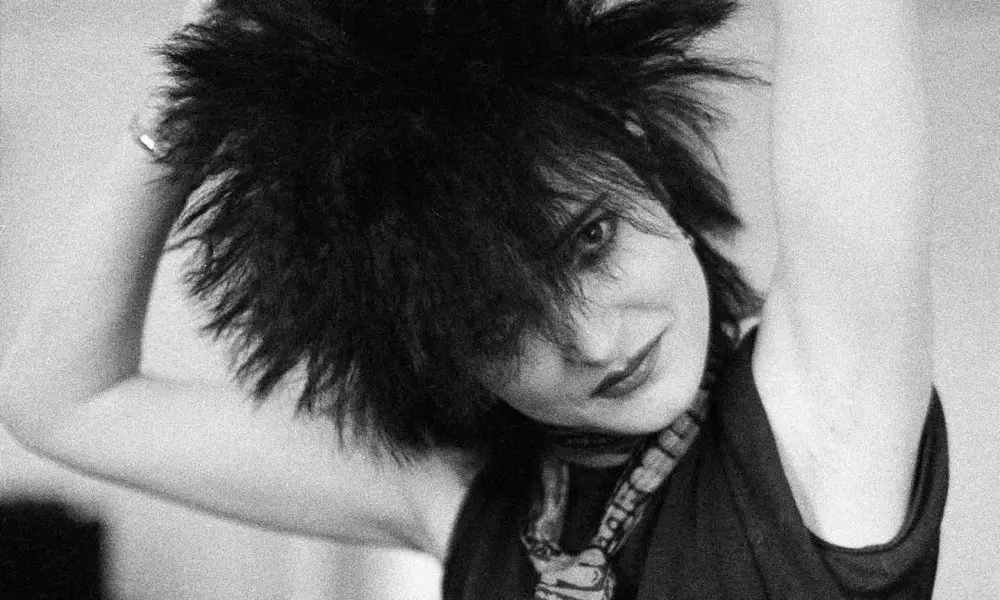
It’s sad to relate, but it’s a fact that, before female punks burst on the scene in the 70s, a woman in the man’s world of rock’n’roll had little chance of even being taken seriously, let alone being viewed on equal terms.
Strong, independently-minded women in rock were depressingly thin on the ground up to this point. Jefferson Airplane’s Grace Slick, the late Janis Joplin, and acclaimed singer-songwriters including Joni Mitchell and Carole King had begun to make a mark in the late 60s and early 70s, but as far as all-girl bands were concerned only a few, such as Anglo-Canadians The She Trinity and New Hampshire proto-punks The Shaggs, dared to try writing and recording their own material, and those that did struggled to gain any kind of commercial foothold.
Gender equality
For all its faults and inconsistencies, however, one of punk’s more lasting achievements was its success in beginning the process of balancing rock’n’roll’s gender equality scales. Thanks to the era’s liberating “Year Zero” approach, aggressive, all-female bands such as The Slits, or single-minded, charismatic individuals the likes of Siouxsie Sioux, were able to break through and speak with authority for aspiring female punks, rather than being forced to play predictable roles as vulnerable objects, jilted lovers, or femme fatales in a quest for commercial success drawn up by a faceless, Machiavellian (and no doubt male) manager, producer, and/or music publisher.
Hints that things were changing for the better first came in 1975 when all-female rockers The Runaways were formed by guitarist Joan Jett and drummer Sandy West. The group partied hard on their own terms and enjoyed a success akin to Beatlemania in Japan, while their two guitarists, Jett and Lita Ford, later went on to launch successful solo careers.
Iconic female performers
Meanwhile, on the other coast, two iconic female performers were about to come to the fore in the burgeoning and highly competitive New York City punk scene, centered primarily upon two legendary clubs, CBGB and Max’s Kansas City. Later hailed as one of the world’s first “art punk” albums, Patti Smith’s legendary, John Cale-produced debut LP, Horses, was released by Arista in December ’75, and both her highly original, Beat poetry-infused lyrics and her band’s rudimentary garage-rock raunch ensured that the album quickly gained widespread critical acclaim.
The NYC punk scene also made a star of Deborah Harry, whose distinctive, photogenic features and two-tone bleached-blonde hair ensured she quickly became one of punk’s most recognizable figures. Significantly, Harry wrote or co-wrote many of her band Blondie’s biggest hits, among them “Picture This” and “Heart Of Glass,” and after the multi-million-selling success of their third LP, Parallel Lines, she had outpaced punk and become a superstar on her own terms.
‘Commanding yet aloof, entirely modern’
A group of highly individual female punks also rose to prominence during the simultaneous UK punk explosion. Initially one of the so-called “Bromley Contingent” that followed Sex Pistols, Siouxsie Sioux quickly formed her own band, Siouxsie & The Banshees, with fellow Pistols acolyte Steve Severin, and soon proved to be one of the most confident and mesmerizing performers on the scene (esteemed music writer Jon Savage described her as “commanding yet aloof, entirely modern”).
Another phenomenal songwriter connected with Sex Pistols’ initial entourage was Ohio-born, ex-NME contributor Chrissie Hynde. Having worked at Malcolm McLaren and Vivienne Westwood’s punk-inspired SEX emporium on London’s King’s Road, she formed The Pretenders in 1978, signed to Dave Hill’s Real Records, and, by late ’79, had scored two UK No.1s courtesy of the addictive 45 “Brass In Pocket” and her band’s hard-edged but accomplished self-titled debut LP.
Also rapidly emerging as contenders on the early UK punk scene was X-Ray Spex, led by the anarchic, Anglo-Somalian Poly Styrene (aka Marion Elliott). Later described by Billboard as the “archetype for the modern-day feminist punk,” Poly proudly wore dental braces and, perhaps most among the female punks of the time, resisted the idea of the stereotypical 70s sex-object rock star. X-Ray Spex’s seething, anti-consumerist, pro-feminist debut 45, “Oh Bondage Up Yours!” is still rightly regarded as one of punk’s most important 45s, while their underrated, lone LP, Germfree Adolescents, also included three UK Top 40 hits.
‘Decisive musical roles’
Crucially, punk also encouraged the idea of women occupying decisive musical roles within the band framework, rather than merely providing a pretty face center stage. Underrated first-wave punks The Adverts were one of the first UK outfits to play London’s legendary punk haunt The Roxy, but their frontman was the cynical, intense (and male) TV Smith, while the band’s bassist was Gaye Advert, one of the UK’s most iconic female punks, of whom music writer Dave Thompson suggested: “her panda-eye make-up and omnipresent leather jacket defined the face of female punkdom well into the next decade.”
Anything but the “Typical Girls” of their minor hit single, all-girl London outfit The Slits were arguably the most groundbreaking of the UK’s female punks. Initially aggressive and confrontational, they touted raw street punk when they supported The Clash in their early days, but they were pouring reggae, dub, and their highly distinctive blend of scratchy, angular punk-pop into their heady brew by the time they recorded Cut, their landmark, Dennis Bovell-produced debut LP from 1979.
Later cited as an influence by performers as diverse as Kurt Cobain and Sleater-Kinney, Cut also inspired a new breed of fascinating and primarily female DIY post-punk outfits such as Delta 5, The Raincoats, The Mo-Dettes, and Swiss band Kleenex (later known as LiLiPUT). Yet while all these outfits broadly shared a pro-feminist stance, they were all very different and distinctive, with their sounds varying from Kleenex’s exuberant but ramshackle post-punk thrash to Delta 5’s tight, Gang Of Four-esque, twin-bass-driven sound.
‘They had enough confidence to be vulnerable and to be themselves’
In turn, both The Slits and The Raincoats directly inspired some of the most iconic female rock performers of the 80s and 90s. For almost 30 years, Kim Gordon was bassist (also sometimes vocalist and songwriter) with enormously influential NYC art-punks Sonic Youth; in her sleevenotes for the Rough Trade/DGC reissue of The Raincoats’ second LP, Odyshape, she wrote: “I loved The Slits because of their boldness and that they actually had commercial songs, but it was The Raincoats I related to the most… they had enough confidence to be vulnerable and to be themselves without having to take on the mantle of male punk/rock aggression.”
Punk’s revolutionary spirit was also detectable in acclaimed, pre-millennial female-fronted acts such as The Breeders and Courtney Love’s Hole (who collaborated with Kim Gordon on their 1991 debut, Pretty On The Inside), while punk’s white-hot aggression is tangible on PJ Harvey’s initial salvo of brilliant, if often relentlessly visceral, LPs Dry and Rid Of Me.
During the 90s, however, punk most obviously manifested itself in Riot Grrrl: an underground feminist hardcore punk movement that originated parallel to grunge in Washington state in the Pacific Northwest. A subcultural movement that still combines a feminist consciousness with a punk-inspired DIY ethic, including grassroots organization and political activism, Riot Grrl spawned many latter-day icons for female punks, along with some fantastic bands, including Bikini Kill, Bratmobile, the UK-based Huggy Bear, and the ever-evolving Portland, Oregon, trio Sleater-Kinney.
‘Girls invented punk rock, not England’
To their immense credit, most of the iconic women whose pioneering records shaped the world beyond punk have remained vital and continue to embrace the future. Sadly, Poly Styrene passed away in April 2011, but with Banga and Blondie’s Ghosts Of Download, both Patti Smith and Debbie Harry fashioned modern-day critically acclaimed releases; meanwhile, in the UK in 2007, Siouxsie Sioux made her diverse, dramatic post-Banshees debut, Mantaray. At a separate tangent, Kim Gordon’s Girl In A Band and ex-Slit Viv Albertine’s Clothes Clothes Clothes Music Music Music Boys Boys Boys rank among the most highly praised rock memoirs of recent years.
Hearteningly, a whole new generation of authoritative post-millennial women in rock have plugged into punk’s lineage and created phenomenal new sounds of their own. Since 2003’s eclectic Fever To Tell debut, NYC’s Yeah Yeah Yeahs have released a series of edgy and unmissable art-punk LPs; all-female London quartet Savages bagged a prestigious Mercury Music Prize nomination for their widely acclaimed 2013 debut Silence Yourself; and notorious Russian outfit Pussy Riot dragged punk back into the mainstream with their provocative, authority-baiting guerrilla performances. Indeed, such are the contributions women continue to make in order to further the cause, it seems Kim Gordon’s controversial T-shirt reading “Girls invented punk rock, not England” may just have had it nailed all along.
Looking for more? Discover how punk took over the world.


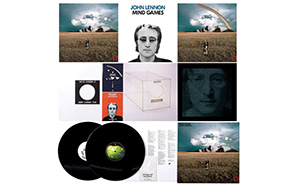
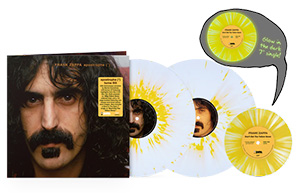

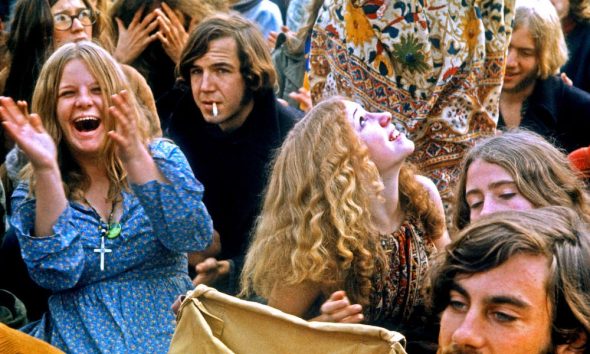
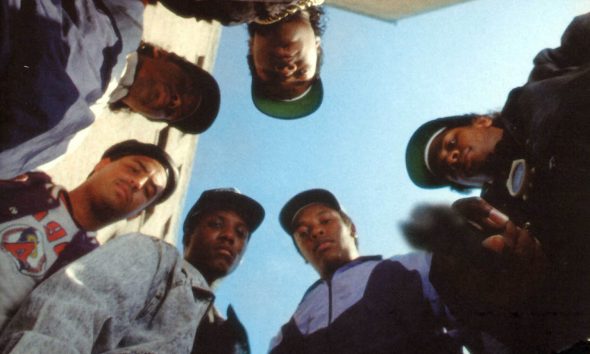

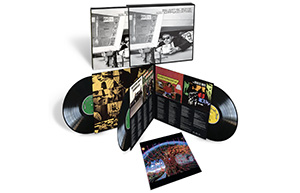

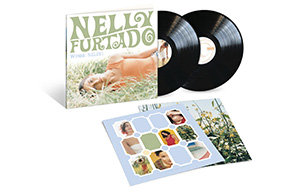
Michael Rodifer
March 21, 2018 at 10:00 pm
The absence of Fanny from your article severely undermines its authority. Shame!
Michael
March 22, 2018 at 5:56 am
That chiding was intended gently, incidentally. You do real justice to all the mighty females on your list. Consider this: on one track of Fanny’s new LP, a group of ’80s girl group vets added their backing voices, by way of acknowledging their debt to Fanny’s trailblazing. Patti Quatro (Suzy’s sis),Kathy Valentine, Vicki Peterson, Debbi Peterson, Susanna Hoffs, Cherie Currie, and Genya Ravan.
Not to disparage the Shaggs, by any means – but Fanny were the first all-female unit to get a major label deal. Bowie thought they were great. I’d hate to see them fade into obscurity
byron
March 25, 2019 at 4:50 pm
I agree with Michael, Fanny should have been on this list, the Yeah Yeah Yeahs are as dull as ditch-water, just copyists of a more confrontational era.
Christine
March 5, 2021 at 8:54 pm
Anyone else bummed that this story wasn’t written by a woman to amplify the “women to the front” ethos during women’s history month?
Babis Zervudakis
March 9, 2021 at 9:31 pm
Where is Wendy-O ? Is this a joke?